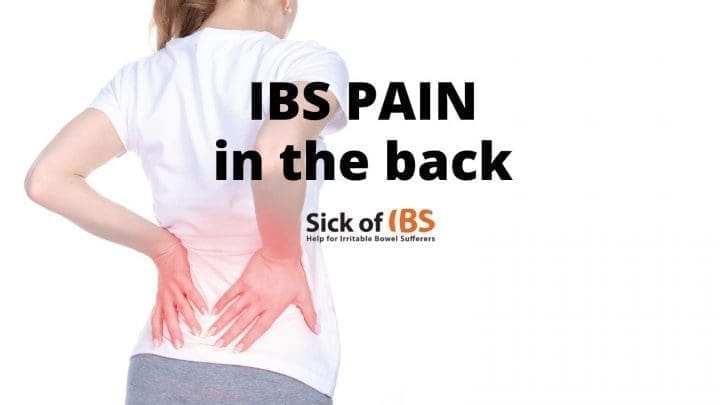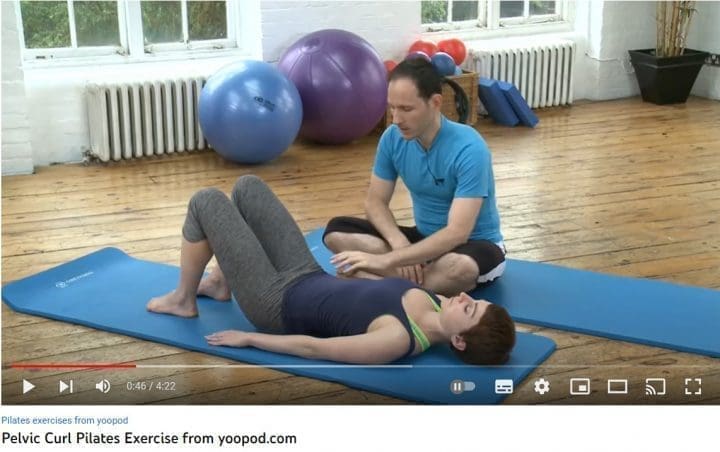
Can IBS cause back pain? Judging from the number of IBS sufferers who suffer from back pain, in particular lower back pain, the answer is yes! If you suffer from back pain with IBS, chances are that you have accumulated more tension in your lower back (and your lower abdomen) than you may realise.
Here is an easy, practical way to release some of that tension, and get some relief!
The Pelvic Curl
The pelvic curl is the BY FAR the BEST gentle excercise I have found to reduce tension and back pain with IBS in the lower back.
I originally learnt this gentle exercise at a Qi Gong class, but it is also used in Pilates.
IF YOU HAVE SEVERE BACK PROBLEMS, ASK FOR THE GUIDANCE OF YOUR MEDICAL PRACTITIONER.
The good news: You don’t have to get changed or get down on the floor to do this. You can do this lying on your bed in your pyjamas – as long as you lie flat without a pillow.
Otherwise you’ll strain your neck!
- Lay flat on your back with your knees bent and your feet flat on the floor/bed about a hand width apart
- Gently push your heels into the floor/bed and very slowly allow your bottom to roll back and for your pelvic region to gradually lift up.
- Go as far as is comfortable, then gently release the pressure on your heels and gently roll back down, vertebra by vertebra.
Here is a pelvic curl demonstration to help you.
You may well break wind or burp while you do your pelvic curl. As I said, it’s great for releasing!
To make this movement extra effective, begin the movement by pushing your heels into the floor/bed and allow that to help you gently do this pelvic curl and lift your hips. No forcing needed. And when you want to unwind, just release the pressure on your heels. Do the movement as slowly as possible to get the most benefit.
What is causing back pain with IBS symptoms – and how to stop it
Back pain with IBS, especially in the lower back (and abdomen) tends to come from:
- Accumulated tension created by IBS trigger loops and stress, repeatedly winding you up. This is accompanied by constipation and/or diarrhoea.
- IBS flare-ups that add to the existing tension and alert you to it through pain
If you want to relieve both of these causes, you need to work out what your IBS triggers are – and release them.
Once you are aware of the triggers, and release the patterns that keep them going round and round, you will no longer need pain to indicate an accumulate of tension.
It can take several years to do this work on your own. Especially when you are dealing with a number of other IBS symptoms.

